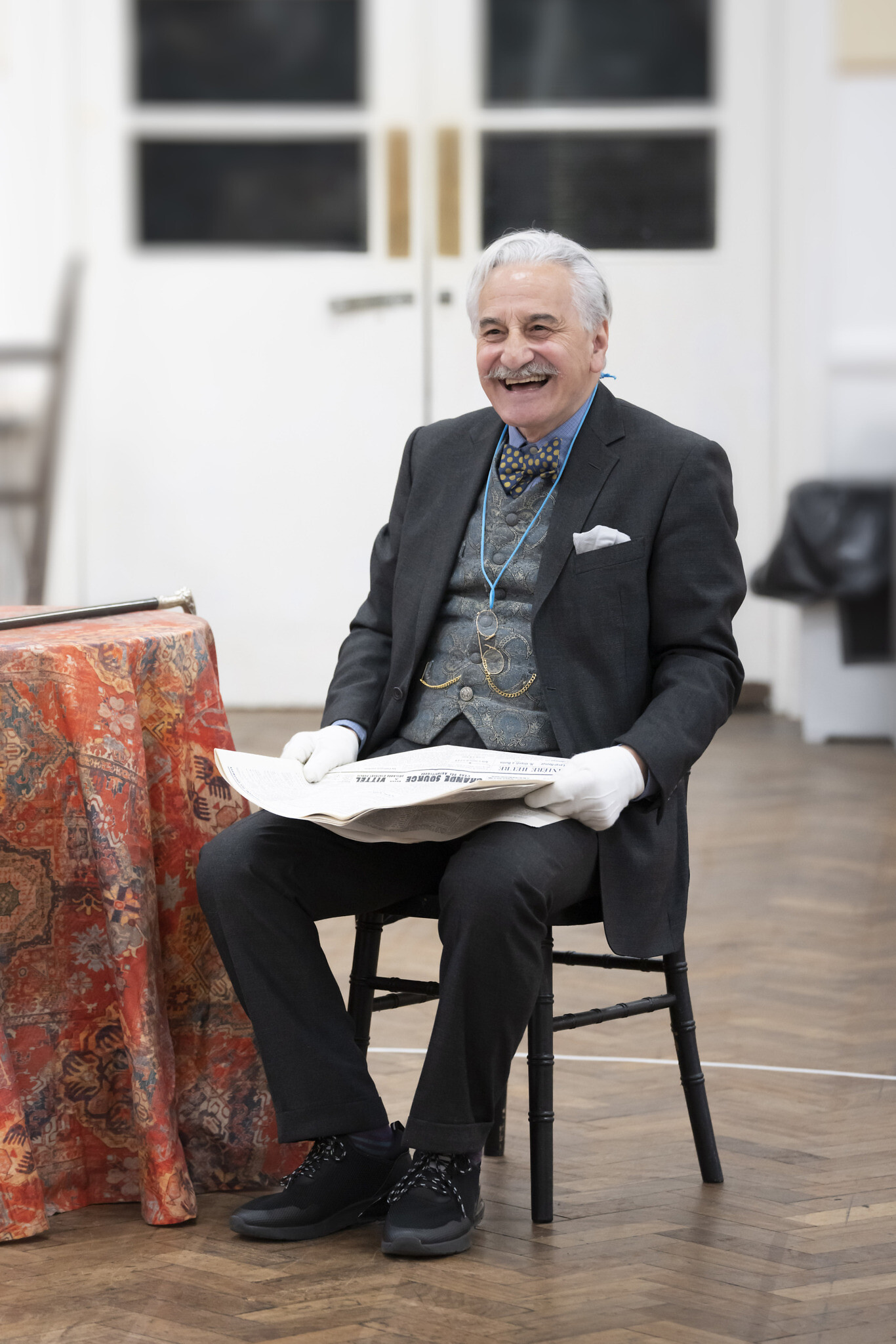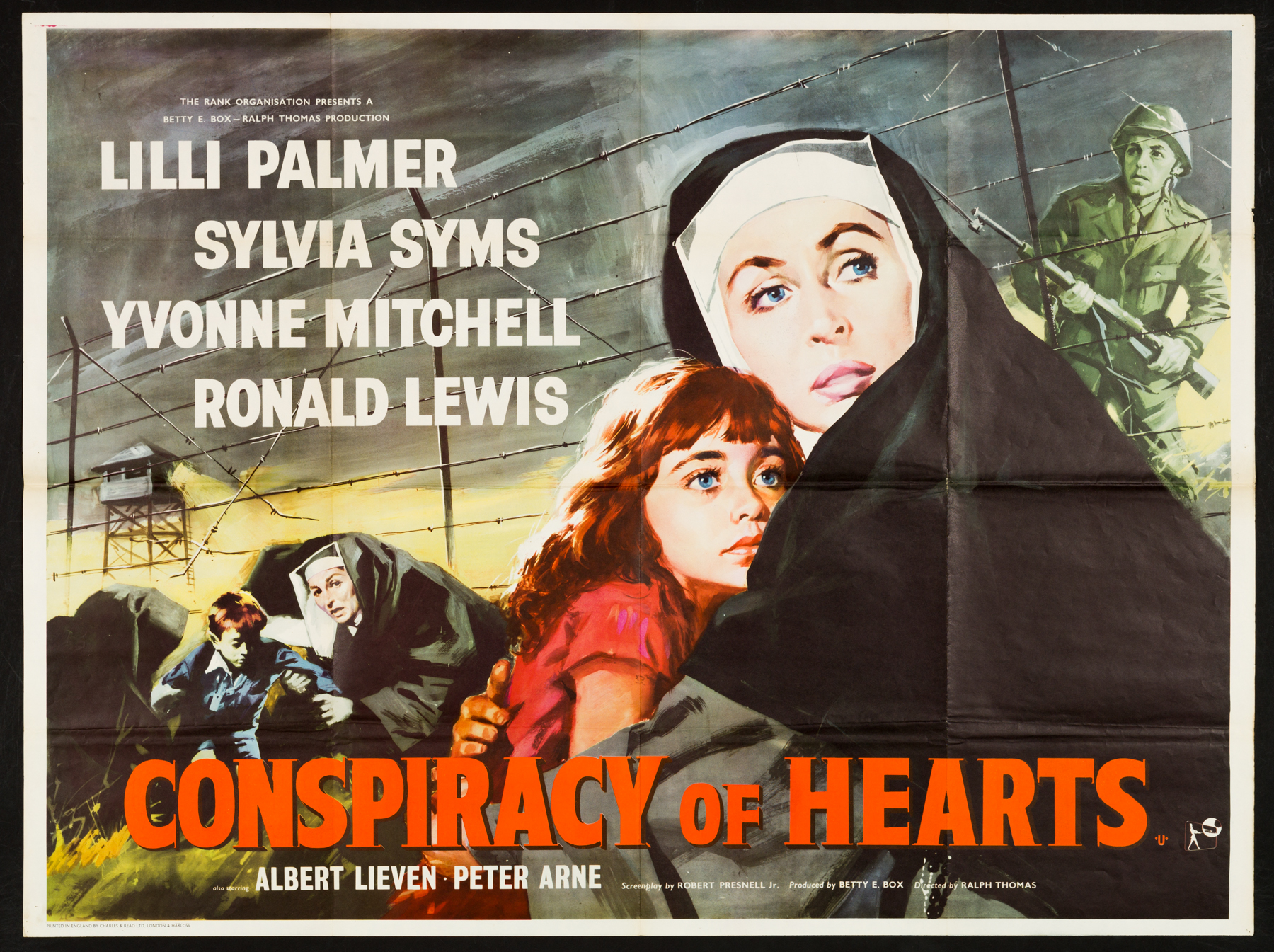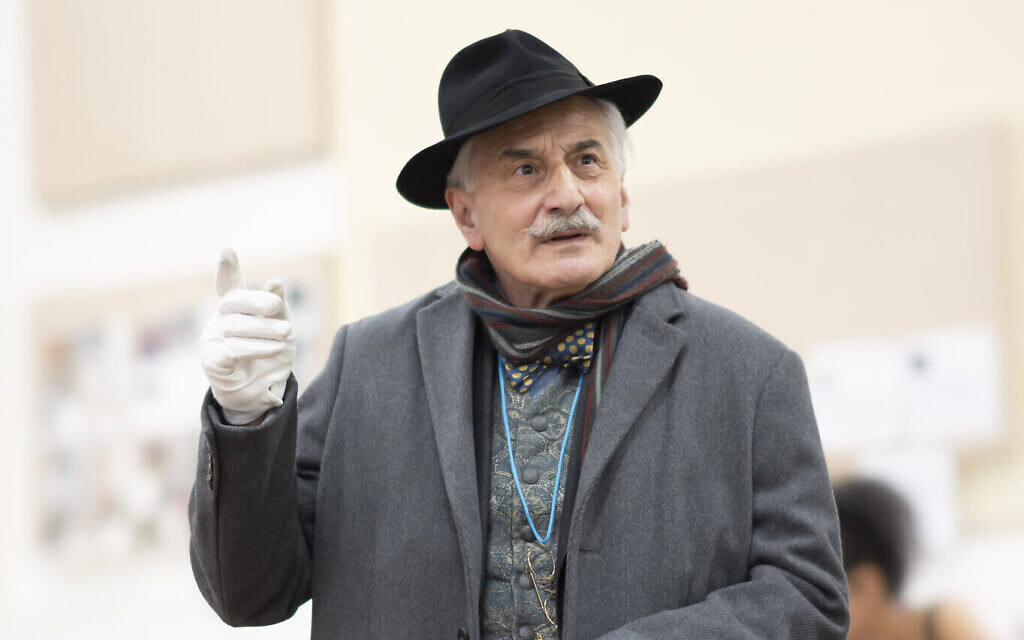Henry Goodman steps into the role of Poirot
Murder on the Orient Express opens at Chichester with Henry Goodman in the lead role
Henry Goodman returns to the Chichester stage this month, leading the cast on a newly-written version of Agatha Christie’s Murder on the Orient Express. One of the crime-writer’s classic yarns, the story has been committed to screen numerous times. Now, for the first time, in Ken Ludwig’s adaptation, the murder mystery is to be performed live on stage, with Goodman waxing up his moustache to step into the role of famed detective Hercule Poirot.
Describing the Belgian sleuth as “a cop with a conscience, a detective with dignity”, Goodman took a break from his hectic rehearsal schedule to speak with me about the production.
“What is so exciting about the challenge of this story is Poirot. We all know I’m standing on the shoulders of giants – Kenneth Branagh, David Suchet, Peter Ustinov, John Malkovich, Albert Finney and Alfred Molina have all played him on screen – but lockdown gave me the time to read quite a lot of the novels and look at all the films. I didn’t do this to nick ideas, although there might be the odd thing that inspired me, but to soak myself up in Poirot and try to understand why he is so important to people. Why did Christie fall in love with him? I see Poirot as a figure of hope and this adaptation enhances that. I’m in my 70s, so it’s an older man who is saying: ‘This was the case that really was unique in my life. Come back and have a look at it with me.’
Get The Jewish News Daily Edition by email and never miss our top stories Free Sign Up
“Why is Poirot so refreshing, and why is he able to say things about the British that the British can’t say about themselves? It’s not just that he’s got an odd walk, or that he’s slightly eccentric in his speech, or that he is a foreigner out of place amongst all these people because in this story there are a lot of foreigners all trapped on a train who are from Russia, Sweden and Hungary. No, the interesting, exotic thing is it that this blend of cultures makes him act differently to how he does when he is with the English. Ludwig has been very clever about keeping alive the whodunnit and the questioning, but also in allowing me to observe different nationalities and different presumed attitudes. He’s not just a cop with a conscience, he is a man with a moral strength, and that’s why this case is so important to him as he invites the audience to go back and explore it with him.”

Previous Poirots have all been on film or TV where the camera can be close-up on every hair on his moustache. Here, we are in a 1300-seat auditorium, which Goodman last appeared at in 2010 when he played the role of Sir Humphrey Appleby in Yes, Prime Minister.
“Live performance doesn’t necessarily mean melodrama, because it’s a wonderfully powerful and intimate space, but it’s theatre not film,” says Henry. “That means not ‘bigness’, but a different type of laser-focus on certain things that a camera can cheat on. The camera can suggest a little shot through a window or a lingering dolly shot or all sorts of things, but we have to make it happen in a different way.”
Speaking about the historical context of the story, Goodman continued: “I am very conscious that it’s set in the 1930s just after the Nazi rise of 1933. Although it’s a murder mystery, and Ken’s been very strong on the thriller element of working out what happens when and where, there are certain social attitudes built into Christie in her time. Some of these tend towards the colonial and imperialist. However, these people are trapped on a train in the ‘30s. I don’t want to give anything away, but towards the end of the play they are revealed to be acting in a particular light of current events. There are the attitudes of the thirties: of nobility, royalty, a Russian princess, an American actress. These are the characters in the novel, so they’re nothing new, but we have intensified the contrast between them, creating a strong insight into the attitudes of the time, which speak to us now because here we are with Russia invading Ukraine. In the ‘30s that’s exactly what was going on – an invasion of Europe.”
In 1997 Goodman brought Broadway’s Billy Flynn to London in Kander and Ebb’s Chicago. I ask if there are any parallels between playing a ruthless criminal defence lawyer and an investigating detective.
“I’ve played a lot of manipulative nasty people, but the reason these roles are so interesting to play, and why people enjoy reading criminal novels and dealing with dark stuff, is that there’s something charismatic about them. Flynn is manipulative, while Poirot discovers other people’s manipulation, and that is a joy to play. Poirot is passionate about his moral certitude in a world that is in danger.”

Goodman grew up in the East End and worked a pitch selling watches on Petticoat Lane. He landed his first role in 1960 in a film called Conspiracy of Hearts. He was 10. “The film was about little kids being rescued from a concentration camp by nuns. My picture was in Woman’s Weekly – the first image of myself on film was standing behind barbed wire as a little boy in a concentration camp. These things go very deep.
Does Goodman see any Jewish element in the character of Poirot? “Maimonides wrote a guide for the perplexed in the middle of intense Arabic destruction of the Jewish tribe all around him. He was warm, uplifting and embracing of his culture and also understanding of the outsiders, the Arabs. He’s always been a bit of an inspiration to me. I see Poirot as a good man with a conscience who, like Maimonides, is a guide for the perplexed.”
Murder on the Orient Express opens on 13 May and runs until 4 June at Chichester Festival Theatre. www.cft.org.uk

Thank you for helping to make Jewish News the leading source of news and opinion for the UK Jewish community. Today we're asking for your invaluable help to continue putting our community first in everything we do.
For as little as £5 a month you can help sustain the vital work we do in celebrating and standing up for Jewish life in Britain.
Jewish News holds our community together and keeps us connected. Like a synagogue, it’s where people turn to feel part of something bigger. It also proudly shows the rest of Britain the vibrancy and rich culture of modern Jewish life.
You can make a quick and easy one-off or monthly contribution of £5, £10, £20 or any other sum you’re comfortable with.
100% of your donation will help us continue celebrating our community, in all its dynamic diversity...
Engaging
Being a community platform means so much more than producing a newspaper and website. One of our proudest roles is media partnering with our invaluable charities to amplify the outstanding work they do to help us all.
Celebrating
There’s no shortage of oys in the world but Jewish News takes every opportunity to celebrate the joys too, through projects like Night of Heroes, 40 Under 40 and other compelling countdowns that make the community kvell with pride.
Pioneering
In the first collaboration between media outlets from different faiths, Jewish News worked with British Muslim TV and Church Times to produce a list of young activists leading the way on interfaith understanding.
Campaigning
Royal Mail issued a stamp honouring Holocaust hero Sir Nicholas Winton after a Jewish News campaign attracted more than 100,000 backers. Jewish Newsalso produces special editions of the paper highlighting pressing issues including mental health and Holocaust remembrance.
Easy access
In an age when news is readily accessible, Jewish News provides high-quality content free online and offline, removing any financial barriers to connecting people.
Voice of our community to wider society
The Jewish News team regularly appears on TV, radio and on the pages of the national press to comment on stories about the Jewish community. Easy access to the paper on the streets of London also means Jewish News provides an invaluable window into the community for the country at large.
We hope you agree all this is worth preserving.
-
By Brigit Grant
-
By Laurent Vaughan - Senior Associate (Bishop & Sewell Solicitors)
-
By Laurent Vaughan - Senior Associate (Bishop & Sewell Solicitors)
-
By Laurent Vaughan - Senior Associate (Bishop & Sewell Solicitors)
-
By Laurent Vaughan - Senior Associate (Bishop & Sewell Solicitors)






















